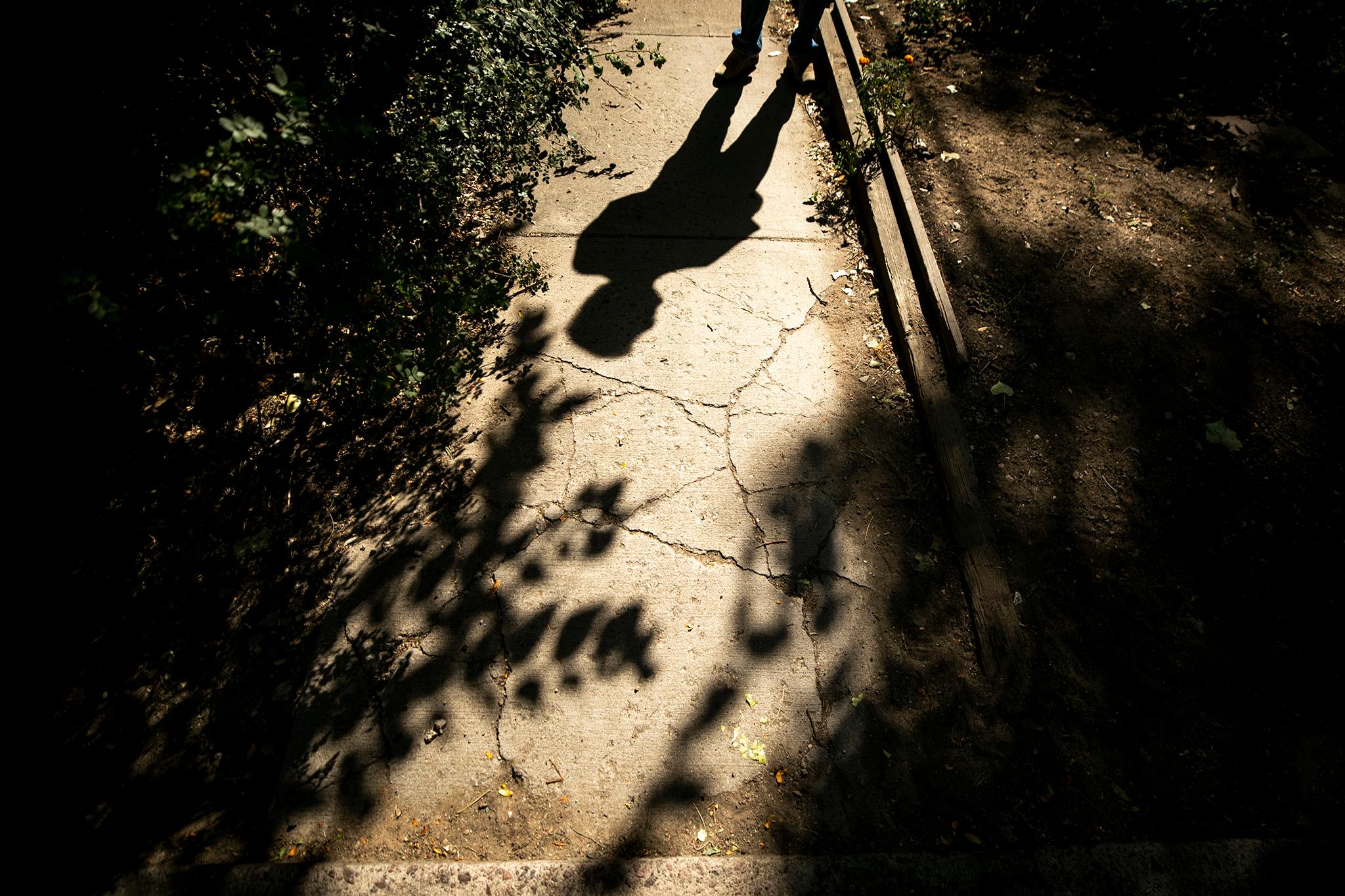Starting in January, most property owners will likely pay a flat $150 fee as part of Denver’s new sidewalk repair program.
The goal is to fix Denver’s broken sidewalks and build others where there are none.
The city has more than 300 miles of missing sidewalks and 800 miles where the sidewalks are too narrow, according to the Department of Transportation and Infrastructure.
The fee is part of the voter-approved Denver Deserves Sidewalks program, which is funded through annual fees on property owners. Previously, owners were responsible for sidewalk upkeep.
The original version voters approved in 2022 charged owners based on linear footage of property facing the street. But an early fee calculator found that some owners would pay between $200 and $800 per year, every year.
So city leaders postponed the program’s rollout twice to alter the fee structure, proposing a $150 annual fee for most commercial and residential properties in the city. The board of community members, city leaders and Councilmembers also proposed expanding the city’s fee discount for low-income families.
“The recommendations were also very much informed by what we heard from community,” said Jill Locatore, the executive director of Denver Streets Partnership who spearheaded the ballot measure back in 2022.
City Council’s land use, transportation and infrastructure committee voted Tuesday to pass the changes on to the full body for a vote. If passed, the fee will take effect in 2025.
Most property owners will pay the $150 flat fee.
A small portion of owners with more than 230 linear feet of sidewalk on major streets will be charged an additional $3.50 for each foot over 230 linear feet.
But according to the Department of Transportation and Infrastructure, most people – 95 percent of all owners and 99 percent of single-family homeowners – will pay the $150 fee.
The $150 fee is in line with Denverite’s analysis of the original fee structure, which found that the highest volume of property owners would pay between $100 to $200 annually.
“The proposed fee structure remains aligned with the intent of the original ordinance from a revenue perspective, adding up to an estimated $40M of annual revenue,” said DOTI spokesperson Nancy Kuhn.
But it’s still unclear how long and how expensive the program will be. During the 2022 election when the program was on the ballot, estimates ranged between nine and 27.5 years.
What about my sidewalk that’s broken right now?
With responsibility shifted away from property owners, the delayed fees means that the city will not fix many sidewalks in the meantime. Plus, city staff are still working on a plan that will determine where to prioritize the new funds.
But DOTI staff have said that the city is maintaining a small portion of funds to fix Denver’s worst offenders, and that the city will prioritize the worst sidewalks when the program gets underway next year.

